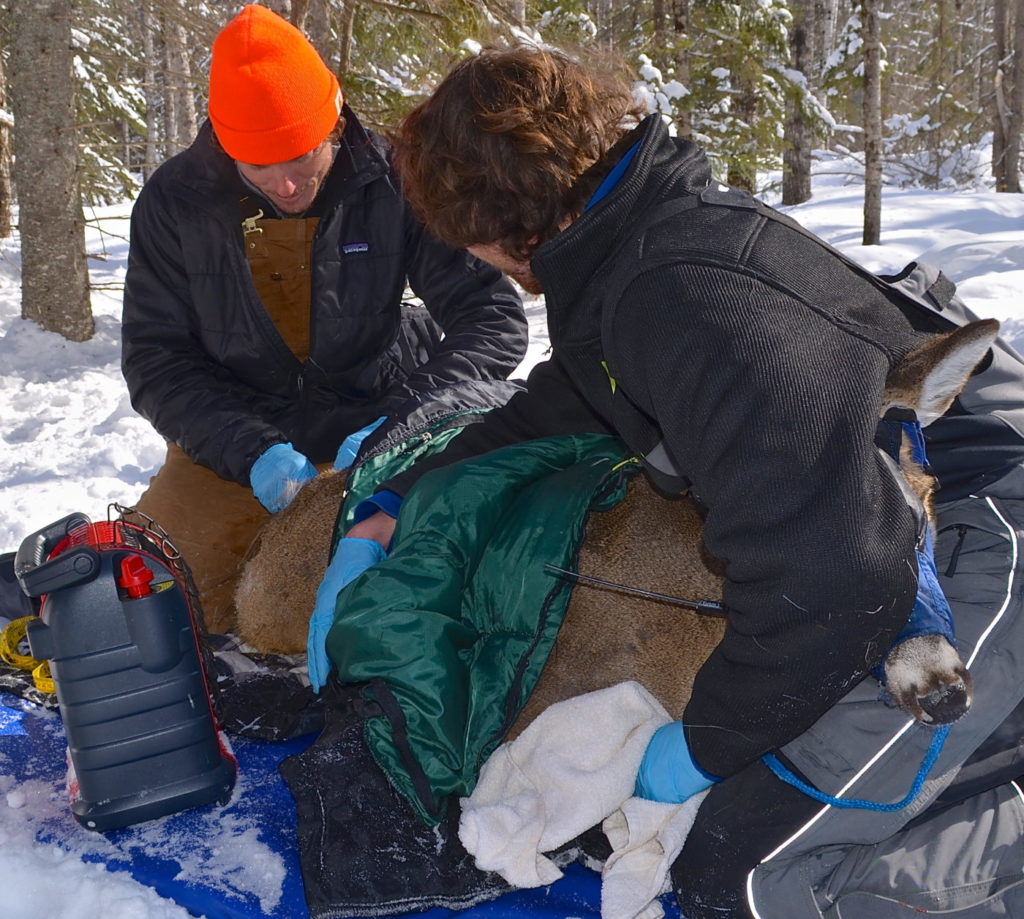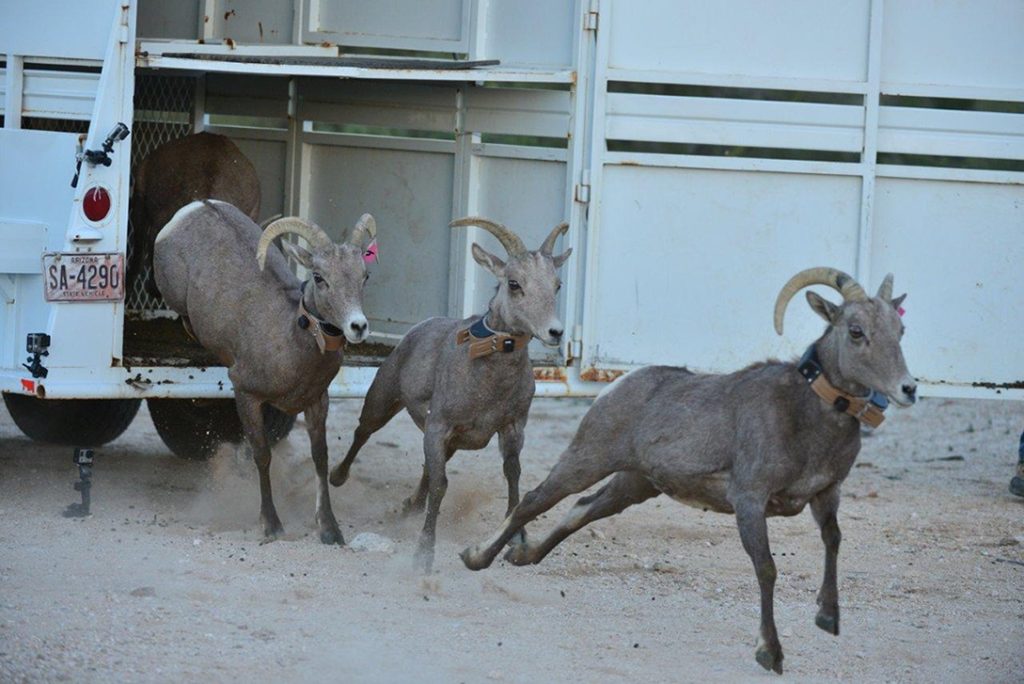In the August 2016 issue of the Journal of Mountain Hunting, editor Adam Janke penned an article entitled A Call to Action. If you read that article, you may recall his opening line, a phrase most of us know well: hunting IS conservation. As we all know, hunters are the original conservationists. The monies generated through hunting and firearms related purchases are the driving force behind wildlife conservation in North America. Our wildlife conservation model, aptly named the North American Model of Wildlife Conservation, is esteemed worldwide for its success in managing publicly accessible and sustainable wildlife populations.
Furthermore, Adam reinforces the hunter’s role in conservation – because we take action. We go to the mountains under our own power and challenge ourselves with heavy loads, cold weather, and relentless rain and try to outwit our game of choice. If we succeed, we feed our families and our neighbors with the purest form of organic protein. And perhaps most importantly, we actively participate in the never-ending cycle of life.
To help us enjoy and continue our pursuit of wild game in wild places, over the course of history many worthy organizations have surfaced to provide and enhance habitat, to educate the public, and to advocate for hunters. However, many of these fine organizations are limited in their true impact based on their legal designation and tax status.

After I read the article urging hunters to take action – not to just passively belong and put another sticker on the SUV – I reached out to Adam to discuss an important component that I felt was missing in the original article: Safari Club International. Now before you get your hackles up, let me explain. I am the first to admit SCI has an image problem. When you read the line above you probably thought something like, “I’m never going on safari in Africa. I’m a dedicated backcountry hunter. SCI is just a bunch of rich guys going overseas and collecting trophies. I can’t afford to be part of that organization.” I thought the same thing. Until I started digging in and learning what SCI is, does, and stands for.
Safari Club International was organized in 1972 in an effort to bring individual safari/hunting clubs together for a common purpose. Today Safari Club International is a worldwide network of outdoorsmen and women in local chapters focused on protecting hunters, protecting hunting, and promoting wildlife conservation.
SCI is in fact organized under two distinct banners, the distinction having to do with tax status and what can and cannot be done with donor monies. SCI is a 501(c)(4) non-profit whose main mission is to politically lobby and advocate for hunter’s rights around the world. As such, SCI can support legislative initiatives and candidates that support our rights to own firearms and hunt.
On the flip side, SCI Foundation is a 501(c)(3) non-profit. This tax structure does not allow involvement in the political side of things; rather, SCIF is organized around conservation, education, and humanitarian services.
Here are some specific examples of the SCIF’s involvement and impact in North America and around the world in recent years:
North America
- Alaska Wood Bison Reintroduction
- Colorado Mule Deer Project
- East Mojave Mule Deer Project
- Michigan Predator-Prey Project
- Missouri Black Bear Project
- Montana Bitterroot Elk Project
- Newfoundland Caribou Predator-Prey Project
- New Hampshire Moose Project
- Santa Catalina Mountains Bighorn Sheep Reintroduction
- Sitkalidak Island Kodiak Brown Bear Project
- Southwestern Alberta Grizzly Bear Project
- South Rockies Grizzly Bear Project
- Washington Wolf Project
- Wisconsin Predator-Prey Project
- Wyoming Moose Predator-Prey
- Wild Harvest Initiative
- Ya Ha Tinda Alberta Elk Project
- Alberta Elk Access Management
- Alberta Cougar Sheep
- Alberta Wolf
- Drayton Valley Chapter – Effects of Otter on Sport Fish
- EHD White-tailed deer with MossyOak
- Montana Madison Valley Bighorn Sheep
- Absaroka Elk Ecology Project
- Maine Black Bear Project
- Manitoba Turkey
- Montana Elk Herd Monitoring
- Washington and BC Mountain Goat
- Oregon Cougar Project
- Alaska Dall Sheep
- Texas Inland Alligator Project
- US-Mexico Borderland Ecology
- Wyoming- Lower Gros Ventre Habitat Enhancement
- Alaska Kenai Moose Project
- Georgia Coyote Deer
- Oregon Predator Prey Project
Africa
- African Elephant Database
- African Lion Database
- African Wildlife Consultative Forum
- CAMPFIRE Audit
- Economics of Hunting in Africa
- Namibia Leopard Project
- Tanzania Hippo Habitat Project
- Tanzania Lion Project
- Tanzania Ruaha African Buffalo Disease Project
- Uganda Kudu Project
- Zambia Lion Project
- African Wildlife Genetics
- Anti-poaching BVC Rhino Project
- Anti-poaching Chiredzi Black Rhino Trust
- Anti-poaching Enforcement in Zambia with Frankfurt Zoological Society
- Anti-poaching Lowveld Rhino Conservancy Trust
- Anti-poaching Microlight Flyer Tanzania
- African Buffalo Disease Research
- Carnivore Biodiversity in the Tarangire Ecosystem
- Congo and Gabon Spotted Hyenas
- Mountain Nyala Project
- South Africa Wildebeest and Zebra
- Human-lion conflict in Hwange Zimbabwe
- Human-lion conflict South Africa
- Human-lion conflict Wildlife Horizons Wildlife Trust
- Human-wildlife conflict in Zimbabwe
- Zimbabwe Leopard Research and Management
- Malawi Lion Research and Management
- Mozambique Lion Research and Management
- Tanzania Lion Research and Management
- Kalahari Predator-prey survey
Asia
- Tajikistan Argali Sheep Project
- Mongolia Argali Sheep Project
- Pakistan Snow Leopard Project
- Mongolia Snow Leopard Project
- Pakistan Markhor Community Capacity Building Project
- Vietnam Ungulates Project
- Barasingha Study
- Pakistan Markhor and Urial
- Saiga Antelope
Other International
- Iberian Ibex Pathogen Transmission
- Paraguay Jaguar
On top of this incredible breadth of major grant projects, every chapter has local projects they take on and fund with monies raised at their local chapter events. Since I am involved in Washington state, let me share a sample of the local work your SCI/SCIF chapters are doing.
In 2011, the Central Washington Chapter partnered with the Yakama Nation and local landowners and reintroduced antelope to Washington. Ninety-nine animals were transported from Nevada, and now the most recent survey indicates that the initial antelope herd has doubled. The six chapters in Washington are also involved with surveying our bighorn populations, which have been devastated in recent years by pneumonia from contact with domestic sheep. Chapter members do ground surveys and have provided tens of thousands of dollars to the research efforts to combat pneumonia in our western states. Several chapters are also now partnering with the Rocky Mountain Goat Alliance to organize teams to survey various Washington goat herds in an effort to increase future tag allocations and hunting opportunities.
Over the past 20 years, the Central Washington Chapter alone has sponsored 30 local teachers to attend the American Wilderness Leadership School. Over the course of a week, the teachers learn about critical issues affecting wildlife today and the role that regulated hunting and fishing plays in the management of our wild resources. They come home with hundreds of hours of lesson plans to use in the classroom and educate students about the truth of the environment, science, and management. In addition, teachers are certified as National Archery in the Schools instructors, so they can provide archery as an option for physical education classes and earn the right to compete statewide and nationally.
That’s just a sample of the Foundation side of the house. What about SCI and advocacy for hunters and hunter rights?
SCI is the only pro-hunting organization with an office in Washington D.C. and a full-time staff of policy experts dedicated to the protection of hunting and hunters. I highly recommend you sign up for the Hunter Advocacy Email Alerts so you can stay informed about the federal issues that affect hunting and hunters. On a state level, the legislation that impacts hunting, wildlife, and hunters is continually monitored and evaluated. For example, in Washington all SCI chapters support the effort to have a lobbyist in our employ to represent hunters in the state legislature. You can keep up with the issues in your state by going to the State Affairs page and clicking on your state to check out any issues that are pending.
The major point is this: hunters simply must participate in the political arena as well if we want to have our voices heard and preserve our freedom to hunt. My hope is that you now have a better understanding of the critical role SCI plays in protecting our hunting rights.
Adam asked us all to take action and be involved. I would like to propose a challenge to the readers of the Journal of Mountain Hunting. I believe those who take the time to read this publication are already going above and beyond in their hunting pursuits. Let’s go above and beyond in our involvement in protecting our hunting heritage.
First: Join the NRA (National Rifle Association) to protect your right to own firearms, whether you are a gun hunter or not.
Second: Join SCI to protect your right to hunt.
Third: Join the species-specific organization of your choice to play an active role in the habitat needs of that animal.
If you are already a member of the organizations listed, step up your membership to a 3 or 5-year commitment or a life membership. The future of hunting lies squarely on our shoulders.




